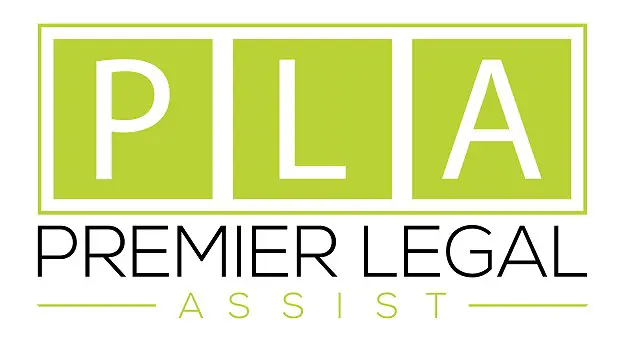Lewisham Council has "a long road to improvements", Following Special Investigation by Ombudsman
Between July and October 2024, the Housing Ombudsman Service investigated 28 cases brought by tenants against the Council, with a 92% maladministration rate.
The Housing Ombudsman Service (HOS) has released a report following a special investigation into Lewisham Council. HOS is an independent, impartial body responsible for resolving disputes between residents and its member landlords and, under its powers, can conduct special investigations into landlords to decide whether there are "systemic failures".
Ombudsman investigation into Lewisham Council
The investigation into Lewisham Council, which manages over 20,000 properties in the London Borough, was prompted by the landlord’s handling of “leaks, damp and mould, complaints, and repairs”. Investigators considered 28 Ombudsman cases brought by Lewisham residents against the Council between July and October 2024, alongside a further site visit to the Council in January 2025. Within the 28 cases reviewed, there were 69 ‘findings’ (the decisions made after an Ombudsman investigation) and 61 of those findings related to maladministration, a rate of 92%.
Maladministration refers to failures that "adversely impact" the resident making the complaint, while 'severe maladministration' is where there is "evidence of serious detrimental impact to the resident" and is the most serious failure the Ombudsman can find. Of the 28 cases and 69 findings by the Ombudsman, there were nine findings of severe maladministration by Lewisham Council (13%).
Some notable cases reviewed by the Ombudsman include:
- A mother with two young children, one of whom is disabled and asthmatic, was forced to live with leaks, mould, and damp for several years despite repeated chase-ups and three separate surveyor visits. The problem began to affect the structural integrity of the property’s ceiling, and the Ombudsman instructed the Council to carry out repairs that had been recommended by a surveyor three years previously.
- Another family with six children lived in a house with a leak and resulting mould, which caused a hole to appear in the ceiling of the property's bathroom. The landlord 'fixed' the issue by putting a board over the hole (twice), but did not address the cause of the leak.
- One resident reported water leaking into their cooker, following repeated complaints about leaks and mould before this one, over two years. Lewisham Council acknowledged that action (a safety assessment and emergency repair) should be taken, but the issue was not resolved for another year.
- An elderly resident with balance issues reported a broken communal porch light, which posed a risk to her safety due to the dark porchway. Lewisham Council arranged, but did not attend, three separate appointments to fix the issue, which took 64 days to complete.
In its conclusion, the Housing Ombudsman commented on the Council’s readiness for the upcoming change in legislation known as Awaab’s Law, which aims to improve service provision for social housing tenants and hold landlords accountable: “Currently, the landlord does not appear sufficiently prepared for the change and with only a few months until Awaab’s Law comes into force, the landlord needs to assess its current plans and priorities to be ready for the October 2025 start.”
Social housing landlord obligations
In the UK, as outlined in the Landlord and Tenant Act 1985, private and social landlords are obligated to ensure that the property is in a good state of repair and that tenants have the right to live in a safe and well-maintained home.
Tenants are responsible for reporting any issues to the landlord as soon as they become aware of them; however, if a tenant experiences problems with their property, such as internal or external damage or disrepair, and their landlord fails to put it right, they may be eligible to make a complaint to the Housing Ombudsman for free.
The Ombudsman can recommend repairs, compensation, or apologies, but it cannot force landlords to take action. Its powers are limited, and outcomes may take months.
Legal action through a housing law solicitor can lead to faster results and enforceable repair obligations. At Premier Legal Assist, we help tenants explore this legal route, especially when informal complaints haven’t resolved the problem.
Why choose Premier Legal Assist for my housing disrepair claim?
It's frustrating and unfair when complaints go unanswered or repairs are repeatedly delayed. At Premier Legal Assist, we help social housing tenants eligible to make a claim to access legal support quickly and easily. We work with experienced, specialist no-win, no-fee housing disrepair solicitors who:
- Understand how social housing landlords work
- Push for urgent repairs
- Work to secure the maximum compensation available
We offer a streamlined, supportive service with no upfront cost, putting you in contact with experienced, specialist disrepair solicitors who work on a no-win, no-fee basis.
To find out if you may be eligible to make a housing disrepair claim, start by filling out our claims form, and a member of our team will contact you to assess your case.
Other Insights
Important Information
Premier Legal Assist is a claims management company. You do not need to use a claims management company to make your complaint, you can complain to the organisation you are complaining about directly. If the issue is not resolved, you can refer it to the relevant independent Ombudsman service for free.
For personal injury claims, you do not need to use a representative to make a claim for low-level personal injuries sustained in a road traffic accident. You can claim through the online Official Injury Claims portal yourself, for free. If your injury damages exceed the small claims limit, we recommend you use a specialist legal service.
For all other types of personal injury, including medical negligence, employment claims and workplace injuries, we always recommend discussing your claim with a legal professional. You should only proceed with a claim when you understand the risks and associated costs.






